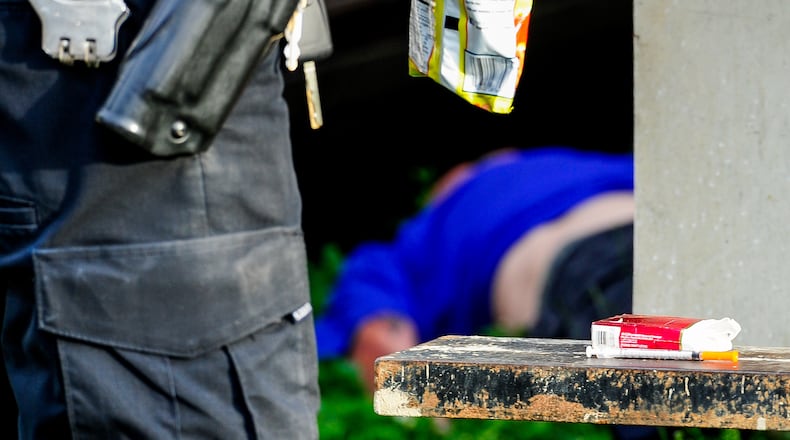MORE: How Quick Response Teams help heroin addicts in Butler County
These types of teams are generally made up of law enforcement officers, drug treatment providers and others who assist overdose survivors in the recovery process. The teams visit survivors immediately after an overdose and offer counseling and referrals to drug rehabilitation facilities for assessment, detoxification, on-going drug treatment, and aftercare.
The goal is to reduce overdose deaths, reduce repeated overdoses per victim, and increase the support network for survivors and their families.
The Hamilton Police Department received $100,000 for the Golden Ticket program it participates in with Fort Hamilton Hospital.
MORE: Narcan may be no match for new fentanyl strains
The program, initiated at the hospital two years ago, includes a quick response team that heads out into the community to combat the opiate drug epidemic, according to Jennifer Mason, EMS coordinator for Fort Hamilton Hospital.
“Our mission is to reduce the stigma of addiction, but with that we have a team of law enforcement and a substance abuse counselor and we take referrals of overdoses or those struggling with opiate addiction that want help,” Mason told the Journal-News in June. “They clearly have to identify that they want help, not a family member wanting help for them.”
Referrals to the program can come from physicians, nurses, EMS workers and law enforcement.
The team assesses an addict’s situation and makes recommendations for recovery, partnering them with the appropriate facility for their situation, sometimes even in the same day.
Hamilton Police will use the new grant funding to dedicate one officer full time to the program.
This gives emphasis to the Golden Ticket program “without diverting any resources from our ongoing enforcement efforts,” said Police Chief Craig Bucheit.
Grant recipients are expected to start using the grant money before the end of the year.
Staff writer Katie Wedell contributed to this report.
About the Author
